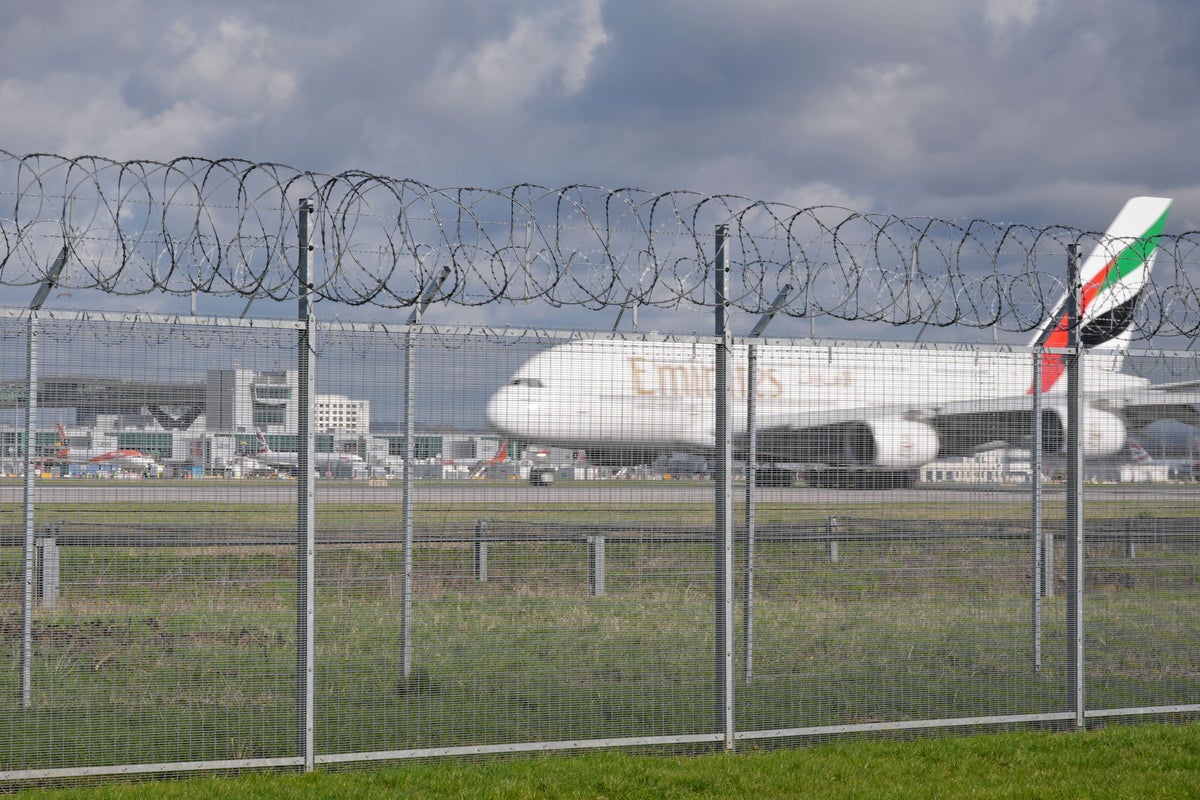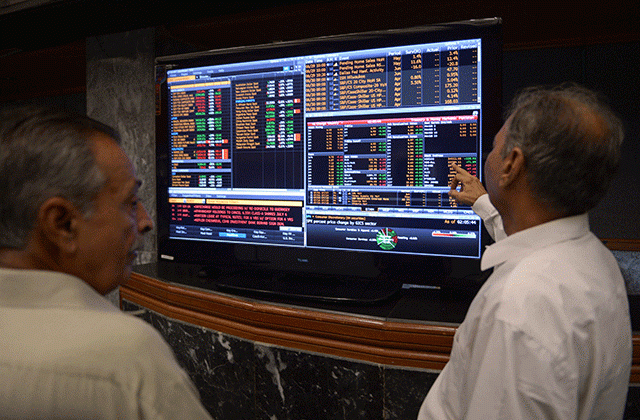Business
What is Gatwick’s expansion plan and who will pay for it?

Gatwick Airport’s expansion plan involves bringing its emergency runway into routine use.
Here the PA news agency answers 14 key questions about the project.
– How many runways does Gatwick have?
It has one conventional runway, and one standby runway.
– What is the standby runway used for?
It is mostly used for aircraft to taxi to and from terminals, but is also used when the main runway is closed for emergencies or maintenance.
– Why does Gatwick want to expand?
It is the UK’s second busiest airport and one of the busiest single-runway airports in the world.
Spare slots at peak periods are scarce and the runway is heavily utilised, meaning disruption can have a severe knock-on effect.
– What must happen to the standby runway for it to be brought into routine use?
It must be moved 12 metres to the north – away from the main runway – to meet strict aviation safety rules.
– What else does the plan involve?
Remodelling and replacing existing taxiways, which connect runways to terminals, hangars and other facilities, extending both terminals, and installing new aircraft gates.
– How about transport?
Gatwick says it would pay for road connections to both terminals to be enhanced, creating fly-overs which separate local traffic from vehicles travelling to or from the airport.
A £250 million upgrade of the airport’s railway station was completed in November 2023.
– What would the standby runway be used for?
Departures of narrow-bodied planes such as Airbus A320s and Boeing 737s.
– What impact would that have on Gatwick’s capacity for flights?
It would enable the airport to be used for about 386,000 flights per year, about 100,000 more than current levels.
– How about annual passenger numbers?
They could rise from about 45 million to 75 million by the late 2030s.
– How much will the project cost?
Gatwick says the plan will cost £2.2 billion.
– Who will pay for it?
The airport says the project will be privately financed. It has pledged to meet the cost without hiking charges to airlines.
– When could the new runway open?
A Government source suggested flights could take off from the new full runway before 2029.
– Who owns Gatwick Airport?
French company Vinci and investment fund Global Infrastructure Partners.
– Does Heathrow’s third runway proposal affect Gatwick?
The Government has indicated its support for Heathrow’s expansion plan.
But it is likely to be many years before construction on a third runway at the west London airport begins, and Gatwick is determined to boost its own capacity.
Business
IRCTC Down? Tatkal Ticket Users Complain Of Repeated ‘Error’ Messages On App; Netizens React; How to Book Train Tickets Online

IRCTC Tatkal Train Tickets: IRCTC’s Tatkal ticket booking service came under fire from netizens on Tuesday, with several users taking to social media to report repeated ‘Error’ messages on the app and website during peak booking hours. Many users said they were unable to secure Tatkal tickets despite multiple attempts, alleging that the system failed at critical stages of the booking process. The complaints emerged even as no major outage was officially reported by IRCTC.
IRCTC Down: Downdetector Shows 68% Outage
The online platform Downdetector recorded a spike in complaints, with 68% of users reporting issues with the IRCTC website. The outage reports mainly came from major metro cities such as Delhi, Mumbai, Bengaluru and Kolkata. Meanwhile, 31% of users said they faced problems with the mobile app.
IRCTC: OTP For Tatkal Train Tickets
Indian Railways is set to make one-time passwords (OTPs) mandatory for booking Tatkal train tickets from railway reservation counters, a move that officials said aims to curb the misuse of the last-minute ticket booking facility. Passengers will have to provide a one-time password, received on their mobile phones, to book Tatkal train tickets from railway reservation counters.
Business
Gold Prices Hit All‑Time High Of Rs 1,38,381 Per 10 Grams

New Delhi: The rates of gold and silver surged by over 1 per cent to hit fresh record highs on Tuesday, driven by safe-haven demand, notably due to escalating US-Venezuela tensions.
MCX gold February futures rose 1.2 per cent to an all‑time high of Rs 1,38,381 per 10 grams and were up 1.01 per cent as of 10.48 am.
MCX silver surged 1.7 per cent to a record high of Rs 2,16,596 per kilogram and was up 1.30 per cent as of 10.48 am. The dollar index had declined 0.20 per cent during the session, making gold cheaper in overseas currencies.
Heightened geopolitical uncertainty, notably escalating US‑Venezuela tensions, has underpinned the rally, analysts said.
The US Coast Guard this month seized a super tanker under sanctions carrying Venezuelan oil and tried to intercept two more Venezuela‑related ships over the weekend, heightening tensions, according to multiple reports.
“Safe haven bidding is featured to start a holiday‑shortened trading week, amid heightened geopolitical tensions,” Rahul Kalantri, VP Commodities, Mehta Equities Ltd, said.
Intensifying US-Venezuela tensions and the killing of a Russian army general in a bomb attack on Monday increased geopolitical risk and supported gold and silver, Kalantri said.
Both precious metals also gained after cooling-off US inflation and no bigger surprise from the Bank of Japan policy meetings last week, he added.
Gold has support at the Rs 1,35,550-1,34,710 zone, while resistance is at the Rs 1,37,650-1,38,470 levels.
Silver has support at Rs 2,11,150-2,10,280 zone while resistance is at Rs 2,13,810, 2,14,970 levels, the analyst said.
Aggressive central bank buying, expectations of US Fed rate cuts, concerns over the impact of US tariffs, geopolitical tensions, and robust inflows into gold and silver ETFs drove the gold and silver prices this year.
Domestic spot gold prices have surged 76 per cent year‑to‑date and international gold prices almost 70 per cent in 2025, on track for their strongest annual performance since 1979.
Both domestic and international prices of silver have gained about 140 per cent YTD.
Business
Can Income Tax Department Access Your Social Media, Emails, Other Digital Platforms From 1 April 2026? Heres All You Want To Know

New Delhi: A social media post is going viral that claims, from 1st April 2026, the Income Tax Department will have the authority to access your social media, emails, and other digital platforms to curb tax evasion.
A post is being circulated by an X handle IndianTechGuide. Fact-checking agency PIB has refuted the social media claim. PIB has stated that the claim being made in this post is misleading.
Can Income Tax Department Access Your Social Media, Emails, Other Digital Platforms?
PIB further explained, the provisions of section 247 of the Income Tax Act 2025 are strictly limited to Search and Survey operations. Unless a taxpayer is undergoing a formal search operation due to evidence of significant tax evasion, the department has no power to access their private digital spaces.
A post by @IndianTechGuide claims that from April 1, 2026, the Income Tax Department will have the ‘authority’ to access your social media, emails, and other digital platforms to curb tax evasion.#PIBFactCheck
_The claim being made in this post is #misleading! Here’s the real_ pic.twitter.com/hIyPPcvALF
— PIB Fact Check (@PIBFactCheck) December 22, 2025
It added, the powers cannot be used for routine information gathering/processing, or even for cases under scrutiny assessment. These measures are specifically designed to target black money and large-scale evasion during search and survey, not the everyday law-abiding citizen
PIB said that the power to seize documents and evidence during search and survey operations has existed since the 1961 Act.
How to get messages fact-checked by PIB
If you get any such suspicious message, you can always know its authenticity and check if the news is for real or it is a fake news. For that, you need to send the message to https://factcheck.pib.gov.in. Alternatively you can send a WhatsApp message to +918799711259 for fact check. You can also send your message to pibfactcheck@gmail.com. The fact check information is also available on https://pib.gov.in.
-

 Business1 week ago
Business1 week agoStudying Abroad Is Costly, But Not Impossible: Experts On Smarter Financial Planning
-

 Fashion5 days ago
Fashion5 days agoIndonesia’s thrift surge fuels waste and textile industry woes
-

 Business1 week ago
Business1 week agoKSE-100 index gains 876 points amid cut in policy rate | The Express Tribune
-

 Business5 days ago
Business5 days agoBP names new boss as current CEO leaves after less than two years
-

 Sports1 week ago
Sports1 week agoJets defensive lineman rips NFL officials after ejection vs Jaguars
-

 Tech5 days ago
Tech5 days agoT-Mobile Business Internet and Phone Deals
-

 Entertainment1 week ago
Entertainment1 week agoPrince Harry, Meghan Markle’s 2025 Christmas card: A shift in strategy
-

 Sports5 days ago
Sports5 days agoPKF summons meeting after Pakistani player represents India in kabaddi tournament





